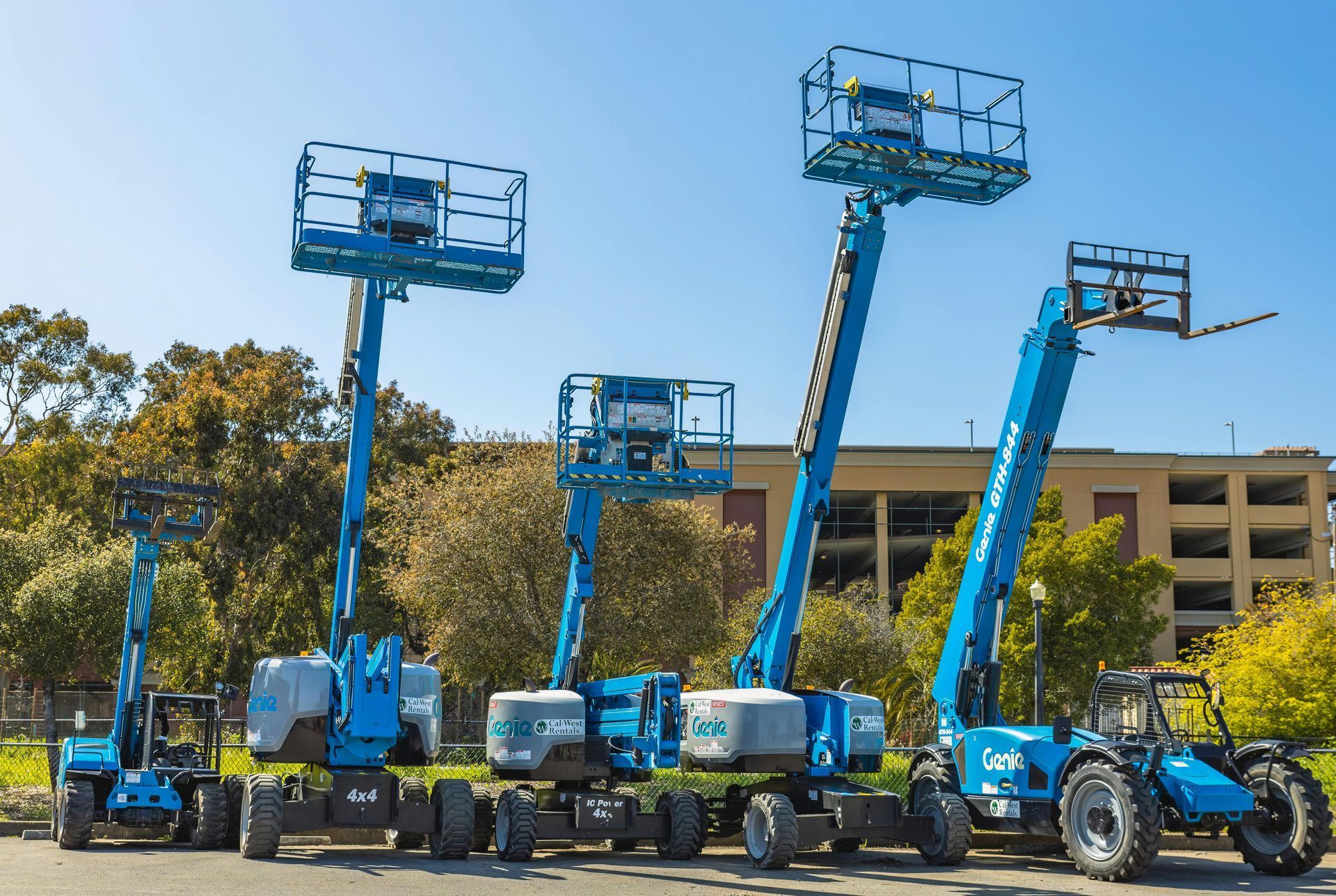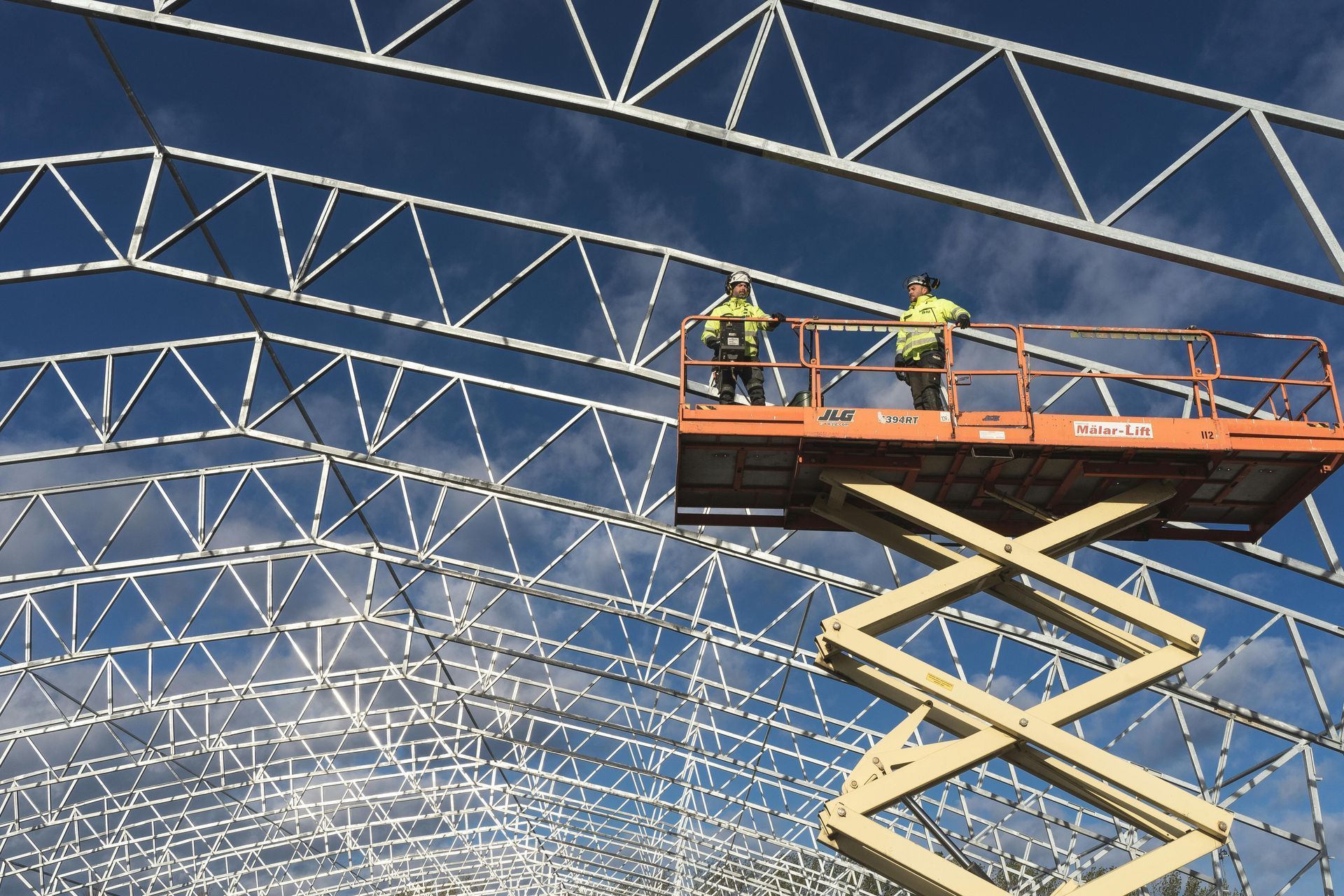Navigating the Construction Boom: How to Manage Equipment Rentals Effectively
Optimizing Equipment Rentals During the Construction Boom

The construction industry is experiencing a significant boom, driven by increased urbanization, infrastructure development, and a growing demand for housing. With this surge comes the necessity for efficient equipment management to ensure projects are completed on time and within budget. Equipment rentals offer a flexible and cost-effective solution for many construction firms. This article delves into the best practices for managing equipment rentals effectively during the construction boom. Using frequently searched keywords, we will explore strategies, tips, and insights to help you navigate this dynamic landscape.
The Rise of Equipment Rentals in Construction
Equipment rental has become a vital component of the construction industry. The benefits of renting equipment, such as cost savings, flexibility, and access to the latest technology, have made it a popular choice for contractors.
- Cost Savings
- Renting equipment eliminates the need for significant capital investment, allowing construction companies to allocate resources more efficiently. This approach reduces maintenance and storage costs, contributing to overall project savings.
- Flexibility and Scalability
- Equipment rentals provide the flexibility to scale operations up or down based on project requirements. This adaptability is crucial during peak construction periods when demand for machinery fluctuates.
- Access to Advanced Technology
- Rental companies often offer the latest models and technologically advanced equipment, ensuring that construction projects benefit from improved efficiency and productivity.
Key Strategies for Effective Equipment Rental Management
- Thorough Planning and Assessment
- Effective equipment rental management begins with thorough planning and assessment of project needs. Key steps include:
- Identifying Equipment Requirements: Determine the types and quantities of equipment needed for each phase of the project.
- Budgeting: Allocate funds for equipment rentals, considering both short-term and long-term project timelines.
- Scheduling: Plan rental periods to align with project schedules, avoiding downtime and ensuring timely availability of equipment.
- Selecting the Right Rental Company
- Choosing a reliable rental company is crucial for successful equipment management. Consider the following factors:
- Reputation and Reliability: Research rental companies' reputations, read reviews, and seek recommendations from industry peers.
- Equipment Quality: Ensure the rental company offers well-maintained, modern equipment that meets your project specifications.
- Support and Services: Opt for companies that provide comprehensive support, including delivery, maintenance, and emergency services.
- Optimizing Equipment Utilization
- Maximizing the utilization of rented equipment can significantly impact project efficiency and cost-effectiveness. Strategies include:
- Efficient Scheduling: Coordinate equipment use to minimize idle time and maximize productivity.
- Operator Training: Ensure that operators are trained to use the rented equipment effectively and safely, reducing the risk of accidents and damage.
- Monitoring Usage: Implement systems to track equipment usage, performance, and maintenance needs, optimizing operational efficiency.
- Negotiating Rental Agreements
- Negotiating favorable rental agreements can lead to significant cost savings. Key considerations include:
- Rental Terms: Understand the terms and conditions, including rental periods, rates, and penalties for late returns.
- Insurance and Liability: Clarify insurance coverage and liability responsibilities to avoid unexpected expenses.
- Long-Term Rentals: Consider long-term rental agreements for ongoing projects, which may offer lower rates and better terms.
- Maintenance and Care
- Proper maintenance and care of rented equipment are essential to ensure reliability and longevity. Best practices include:
- Regular Inspections: Conduct regular inspections to identify and address potential issues before they escalate.
- Adhering to Maintenance Schedules: Follow the rental company's maintenance schedules and guidelines to keep equipment in optimal condition.
- Reporting Issues Promptly: Report any issues or malfunctions to the rental company immediately to ensure timely repairs or replacements.
Case Studies: Successful Equipment Rental Management
- Case Study: High-Rise Construction Project
- A high-rise construction project in a bustling city faced the challenge of limited storage space and fluctuating equipment needs. By leveraging equipment rentals, the project manager was able to:
- Optimize Space: Rent equipment as needed, reducing the need for on-site storage.
- Ensure Availability: Schedule rentals to coincide with different construction phases, ensuring equipment availability without delays.
- Save Costs: Avoid significant upfront investment in equipment, allowing for better allocation of funds to other critical project areas.
- Case Study: Infrastructure Development
- An infrastructure development project required a diverse range of equipment, from earthmovers to specialized machinery. The project team adopted a strategic approach to equipment rentals:
- Partnering with Multiple Rental Companies: Collaborated with several rental companies to access a wide range of equipment.
- Implementing a Tracking System: Used a digital tracking system to monitor equipment usage, maintenance schedules, and rental periods.
- Negotiating Volume Discounts: Secured volume discounts for long-term rentals, resulting in substantial cost savings.
- Case Study: Residential Housing Development
- A residential housing development project benefited from equipment rentals by:
- Scaling Operations: Adjusting rental quantities based on project phases and workload.
- Utilizing Advanced Technology: Renting the latest equipment models to improve efficiency and reduce project timelines.
- Training Operators: Ensuring all operators were trained on rented equipment to maximize productivity and minimize downtime.
Future Trends in Equipment Rentals
The equipment rental industry continues to evolve, with emerging trends set to shape the future of construction projects.
- Digital Transformation
- The adoption of digital technologies is revolutionizing equipment rental management:
- IoT and Telematics: Integrating IoT devices and telematics into equipment provides real-time data on usage, performance, and maintenance needs.
- Mobile Apps: Mobile applications streamline the rental process, allowing project managers to book, track, and manage equipment rentals from their smartphones.
- AI and Predictive Analytics: AI and predictive analytics help optimize equipment utilization, maintenance schedules, and rental periods, enhancing overall efficiency.
- Sustainability and Green Equipment
- The focus on sustainability is driving the demand for eco-friendly rental equipment:
- Electric and Hybrid Machinery: Renting electric and hybrid equipment reduces carbon emissions and aligns with green building practices.
- Energy-Efficient Equipment: Opting for energy-efficient machinery lowers operational costs and environmental impact.
- Sustainable Practices: Rental companies are adopting sustainable practices, such as recycling and eco-friendly maintenance, to support greener construction projects.
- Customized Rental Solutions
- Rental companies are offering more customized solutions to meet the unique needs of construction projects:
- Tailored Rental Packages: Customized rental packages based on project requirements, duration, and budget.
- Flexible Terms: Offering flexible rental terms, including short-term, long-term, and rent-to-own options.
- Value-Added Services: Providing value-added services such as on-site training, equipment consultation, and technical support.
- Collaborative Platforms
- Collaborative platforms are emerging to facilitate better communication and coordination between rental companies and construction firms:
- Online Marketplaces: Digital marketplaces connect construction companies with multiple rental providers, offering a wider selection and competitive pricing.
- Project Management Tools: Integrated project management tools streamline the rental process, from booking and scheduling to tracking and reporting.
- Community Feedback: Platforms that include community feedback and reviews help construction firms make informed decisions when selecting rental companies.
Conclusion
Navigating the construction boom requires effective equipment rental management to ensure project success. By adopting best practices, leveraging advanced technologies, and staying abreast of industry trends, construction firms can optimize their equipment rentals, reduce costs, and improve project outcomes.
The key to successful equipment rental management lies in thorough planning, selecting reliable rental partners, maximizing equipment utilization, and embracing digital transformation. As the construction industry continues to grow, the role of equipment rentals will become increasingly important in driving efficiency, sustainability, and innovation.
By staying informed and adopting strategic approaches, construction companies can navigate the challenges of the construction boom and achieve long-term success in their projects.
#ConstructionBoom #EquipmentRentals #ConstructionManagement #SustainableConstruction #DigitalTransformation #GreenBuilding #RentalEquipment #ConstructionIndustry #ProjectManagement #InnovativeConstruction










